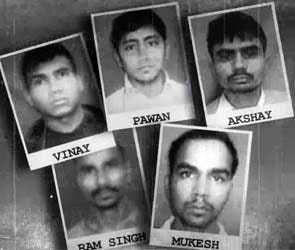The Tragic Case of Jyoti Singh (Delhi, India, 2012)
Jyoti Singh’s story is one of the most infamous and heartbreaking cases of sexual violence, sparking outrage and protests not only in India but around the world.
The Tragic Case of Jyoti Singh (Delhi, India, 2012)
Jyoti Singh’s story is one of the most infamous and heartbreaking cases of sexual violence, sparking outrage and protests not only in India but around the world. Her brutal assault and the circumstances surrounding her death highlighted the pervasive issue of violence against women and led to widespread calls for justice and legal reform.
The Incident
Jyoti Singh, a 23-year-old medical student, was an ambitious and hardworking young woman. Born into a middle-class family in Delhi, India, she was determined to lift her family out of poverty through her education. On the evening of December 16, 2012, she went to see a movie, Life of Pi, with a male friend. After the film ended, they boarded a private bus to return home. The decision to take the bus would have tragic consequences.
Shortly after boarding, Jyoti and her friend realized something was wrong. The bus was not a regular public transport vehicle but one operated by six men who had been drinking. What followed was one of the most heinous acts of violence in recent memory.
Jyoti was brutally raped and assaulted by the six men, including the bus driver, while her friend was beaten unconscious when he tried to protect her. The men used an iron rod to torture Jyoti, causing catastrophic internal injuries. After the assault, the perpetrators threw both Jyoti and her friend out of the moving bus onto the side of the road, leaving them for dead.
The Investigation
Immediate Response
A passerby found Jyoti and her friend lying on the road and called the police. Both were rushed to the hospital, where doctors were horrified by the extent of Jyoti’s injuries. She required multiple surgeries and was placed on life support. Despite her condition, Jyoti provided a detailed statement to the police, describing her attackers and the events that transpired.
Arrests
The Delhi police acted quickly, arresting six suspects within days. The accused included Mukesh Singh, the bus driver, and five accomplices, one of whom was a minor. DNA evidence, eyewitness accounts, and Jyoti’s testimony helped build a strong case against them.
Public Outrage
News of the assault spread rapidly, leading to an unprecedented wave of protests across India. People from all walks of life demanded justice for Jyoti and stricter laws to protect women. Demonstrators gathered in cities, chanting slogans and lighting candles in her honor. The case became a symbol of the deep-rooted issues of gender violence and the failure of the system to protect women.
Legal Proceedings
The trial began in a specially convened fast-track court to address the public demand for swift justice. The five adult suspects were charged with gang rape, murder, and other offenses, while the minor was tried separately in a juvenile court. Despite the overwhelming evidence, the defense argued for leniency, claiming the men were influenced by poverty and lack of education.
The Aftermath
Jyoti’s Death
Despite the best efforts of medical professionals, Jyoti succumbed to her injuries on December 29, 2012, in a Singapore hospital where she had been airlifted for advanced treatment. Her death deepened the national mourning and intensified calls for justice.
Sentencing
In 2013, the four adult suspects were convicted and sentenced to death. One suspect, Ram Singh, died in custody under mysterious circumstances, officially ruled a suicide. The juvenile, being under 18, received a maximum sentence of three years in a reform facility, sparking outrage over the perceived inadequacy of the punishment.
Legal and Social Reforms
Jyoti’s case led to significant changes in Indian law and society:
The Nirbhaya Act (2013): Named after Jyoti (referred to as Nirbhaya, meaning "fearless" in the media), this law introduced harsher penalties for sexual violence, including the death penalty for repeat offenders.
Fast-Track Courts: Special courts were set up to handle rape cases more efficiently.
Cultural Shift: The case sparked a global conversation about women’s safety, gender equality, and the systemic issues that perpetuate violence.
How It All Went Down
Here’s a possible timeline of events based on survivor testimony and police investigations:
December 16, 2012, 8:30 PM:
Jyoti and her friend board a private bus after leaving the movie theater. They are the only passengers aside from the perpetrators.Around 9:00 PM:
The men begin harassing the pair. Jyoti’s friend tries to intervene but is beaten unconscious. Jyoti is then assaulted and raped by all six men, who use an iron rod to inflict severe injuries.9:45 PM:
The perpetrators strip Jyoti and her friend and throw them from the moving bus near Mahipalpur in South Delhi.Late Evening:
A passerby discovers the victims and alerts the authorities. Both are taken to Safdarjung Hospital, where doctors begin emergency treatment.December 17, 2012:
Police arrest the first suspect, Mukesh Singh, leading to the identification and capture of the others.December 29, 2012:
Jyoti dies from her injuries in Singapore, turning the case into a global rallying cry against violence.
Conclusion
Jyoti Singh’s case remains a watershed moment in the fight against gender-based violence. Her story is a painful reminder of the horrors women face and the need for systemic change. While her death led to legal reforms and greater awareness, the fight for justice and equality continues, ensuring that her legacy endures.





